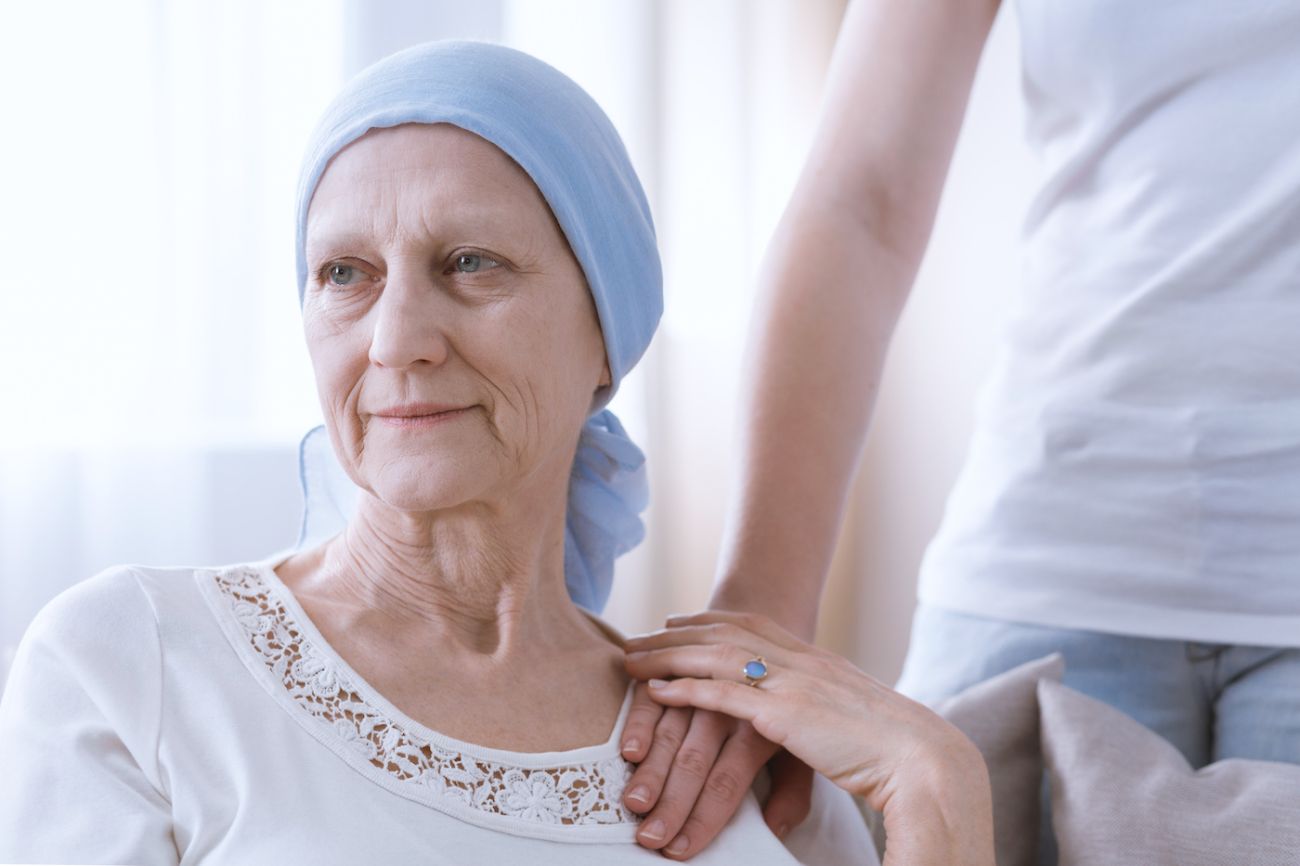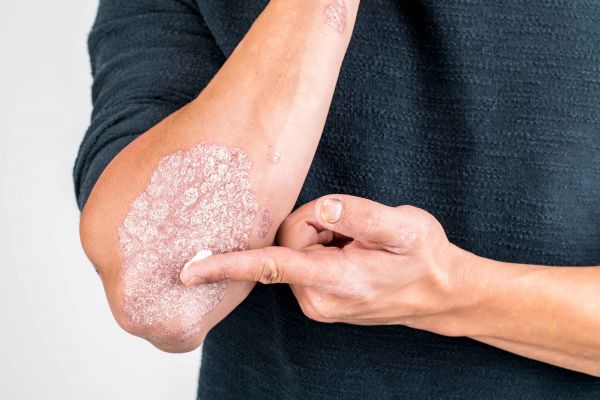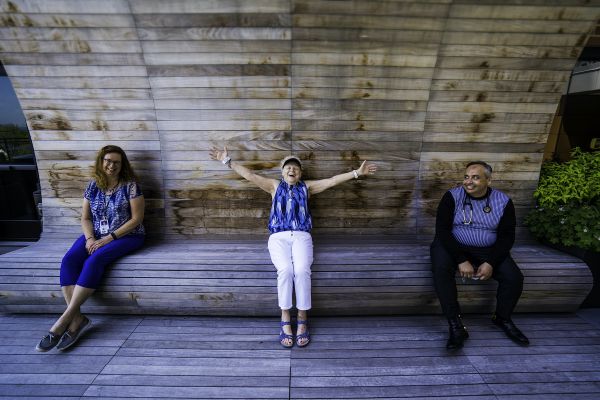Reduced intensity chemotherapy, CAR T-cell immunotherapies and new agents offer older patients effective and less toxic options
The number of people aged 65 and older is anticipated to reach 1.6 billion by the year 2050. That’s twice the number of current seniors — a projection believed to result in a silver tsunami of geriatric cancer cases which will be complicated by the fact that these patients will also have other health conditions, called comorbidities, associated with aging. Such complications especially affect older lymphoma patients, who have difficulty tolerating aggressive chemotherapy, bone marrow transplants and are often not eligible for new treatments through clinical trials.
Lymphoma is broadly a cancer of the lymphatic system, an important part of the body’s immune defense against infection and disease. The seventh most common cancer and eighth leading cause of cancer mortality in the U.S. in 2022, lymphoma can affect the lymph glands, thymus, spleen, bone marrow and any other organ. It falls into two categories: Hodgkin lymphoma and non-Hodgkin lymphoma, an umbrella for as many as 60 different forms of the disease. Some slow-growing types, such as follicular lymphoma, don’t require treatment for decades, but some aggressive types need to be treated urgently with high doses of chemotherapy. While many types of lymphoma are considered curable even in advanced stages, therapeutic outcomes in older patients are generally worse than for younger ones. But over the last five years, the approval of many new drugs and advancements in treating lymphoma have dramatically improved the outcomes for older adult patients.
“The factors that lead to the development of the cancer are different in older adults and the disease is more aggressive,” says medical oncologist Pallawi Torka, MD, Assistant Professor of Oncology, a lymphoma specialist formerly with Roswell Park Comprehensive Cancer Center. “We are starting to design clinical trials focusing on older adults, taking into account not just their physiology, comorbidities and medications, but also the specific biology of their disease.”
New chemotherapy regimen for older patients
Lymphoma in general is a disease of older adults. The average age at diagnosis for diffuse large B cell lymphoma, one of the most aggressive types of lymphoma, is 66. However, the standard chemotherapy regimen for diffuse large B-cell lymphoma that uses the drugs rituximab, cyclophosphamide, doxorubicin, vincristine and prednisone (known as R-CHOP) is difficult for older patients to tolerate. The first step in tailoring treatment for an older adult is to determine the optimal dose of chemotherapy and whether the best choice is R-CHOP or R-mini-CHOP, a weakened version of R-CHOP.
Roswell Park is currently participating in an ongoing, large intergroup clinical trial called S1918 to improve outcomes of diffuse B-cell lymphoma in older adults. It is open to patients over 75 years of age and uses the R-mini-CHOP backbone, with or without the addition of CC486, a novel oral anti-cancer agent.
“The clinical trial is assessing a form of epigenetic therapy, an up-and-coming area of research. The strategy has been very successful already in treatment of many cancers such as leukemia and lymphomas,” Dr. Torka explained. Epigenetic therapies attempt to alter genetic cell changes, such as hypermethylation, that may be associated with aging using chemical and biological agents. Hypermethylation is a cellular DNA action that can inhibit the immune system from effectively defending the body against disease. “Because the hypermethylation phenomenon is seen more in older adults with diffuse large B-cell lymphoma, it is being moved to the front lines."
Why Roswell Park for lymphoma treatment?
Read about what makes Roswell Park unique when it comes to treating lymphoma.
Learn MoreLatest immunotherapies provide better option
Standard immunotherapy is extremely effective in the treatment of lymphomas, she continued: “The oldest form of immunotherapy is a bone marrow transplant – either using the patient’s own immune cells or cells from a donor. Both strategies are used for treatment of lymphoma, but both are risky in older adults, so we try to avoid them in patients above the age of 70 if possible.”
Newer immunotherapies known as chimeric antigen receptor (CAR) T-cell therapies genetically re-engineer the patient’s own immune cells to track cancer cells like heat-seeking missiles and kill them. Roswell Park is well known nationally and internationally for authorization to provide CAR T-cell therapies and offers several for lymphoma, including Kymriah, Yescarta, and Tescartus which are given orally (instead of intravenously). In addition, Roswell Park has clinical trials evaluating next generation CAR T-cell therapies.
“With CAR T-cell therapy the outcomes of fit older adults are similar to their young counterparts. So, this is potentially a great option for older adults who are not candidates for a bone marrow transplant,” Dr. Torka explained.
Another new addition to the arsenal against lymphoma was born from Roswell Park laboratories. Polivy (polatuzumab vedotin), an oral immunotherapy drug developed in part by Ben Seon, PhD, Emeritus Member and Professor of Oncology at Roswell Park, was FDA-approved for diffuse large B-cell lymphoma in 2019. “This antibody was specifically studied in patients who have lymphoma but cannot tolerate a bone marrow transplant,” Dr. Torka said. “Most of these patients were frail and got excellent results.”
Targeted therapy drugs often easier to tolerate
Targeted oral therapies have fewer side effects when compared to chemotherapy and have proven effective in treating many kinds of lymphomas. “This particular class of drugs is growing fast. They are really a boon for older adults because you can take them at home at your own convenience. Once we know they are tolerated well, patients come in once every three months to be monitored,” Dr. Torka said.
She is following older adults with lymphoma being treated with oral targeted therapies to understand the effect of these drugs on their quality of life and barriers to adherence. “We have found that, in contrast to other diseases, patients with lymphoma have an extremely high adherence rate, meaning they take their cancer medication every day without fail because they know how important it is to control their cancer,” she explains. “I have patients in the study who are over 90 years of age with many physical and mental limitations such as blindness and dementia, but with family support and motivation, they take the pills 100% of the time.
“Interestingly, we also found that frail older patients who have a lower quality of life to begin with gained the most benefit when they started taking the pills. Even if we are not able to cure these cancers, we are able to provide a better quality of life for a long period of time.”
She added that researchers are slowly but surely making progress with novel advancements in cancer treatment for older adults: “I recommend that any lymphoma patient seek out a lymphoma expert to make sure they are getting the best care plan based on their particular case as well as their comorbidities and physical fitness.”


